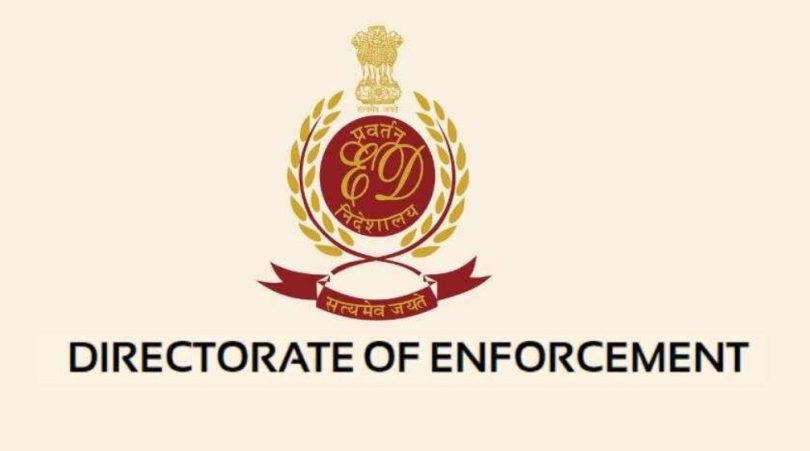ED Full Form – ED in Governmental (India) – In the Indian governmental context, ED stands for “Enforcement Directorate“. The Enforcement Directorate is a law enforcement agency and economic intelligence agency responsible for enforcing economic laws and fighting economic crime in India.
RELATED: BCA Full Form – Courses List, Subjects and Colleges
Its main function is to investigate and prosecute cases related to money laundering, foreign exchange violations, and other financial crimes under the Prevention of Money Laundering Act (PMLA) and the Foreign Exchange Management Act (FEMA). The agency operates under the Department of Revenue, Ministry of Finance, Government of India.
Objective of ED
The primary objective of the Enforcement Directorate (ED) in the Indian governmental context is to enforce economic laws and fight economic crime. The agency operates under the Department of Revenue, Ministry of Finance, Government of India, and is responsible for the investigation and prosecution of cases related to money laundering, foreign exchange violations, and other financial crimes under the Prevention of Money Laundering Act (PMLA) and the Foreign Exchange Management Act (FEMA).
The specific objectives of the ED include:
- To prevent economic crimes and money laundering in India
- To investigate and prosecute cases related to economic offenses
- To identify and seize assets acquired through illegal means
- To coordinate with other agencies, both in India and abroad, to combat economic crimes and money laundering
- To raise public awareness about economic crimes and their impact on society
- To provide training to law enforcement agencies on economic offenses and money laundering.
Organizational setup
The Enforcement Directorate (ED) in India is a specialized law enforcement agency responsible for enforcing economic laws and combating economic crime. The organizational setup of the ED is as follows:
- Director: The Director is the head of the agency and is responsible for the overall management and direction of the ED.
- Special Director: The Special Director assists the Director in the overall management and direction of the agency and acts as the Director in their absence.
- Joint Director: The Joint Director heads a particular regional office of the ED and is responsible for the day-to-day operations of the agency in that region.
- Deputy Director: The Deputy Director assists the Joint Director in managing the operations of a regional office.
- Assistant Director: The Assistant Director is responsible for conducting investigations, collecting evidence, and preparing cases for prosecution.
- Enforcement Officer: Enforcement Officers are responsible for executing searches and seizures, gathering evidence, and conducting investigations under the guidance of the Assistant Director.
Internal Structure of the Organization
The Enforcement Directorate (ED) in India has an internal structure that is organized in a hierarchical manner with clear lines of authority and responsibility. The internal structure of the organization can be broadly categorized as follows:
- Headquarters: The ED is headquartered in New Delhi, and it is responsible for the overall management and direction of the agency. The Director, Special Director, and other senior officers of the ED are based in the headquarters.
- Zones: The ED is divided into six zones, each headed by a Joint Director who is responsible for the operations of the agency in that zone. The zones are located in New Delhi, Mumbai, Chennai, Kolkata, Chandigarh, and Lucknow.
- Regional Offices: Each zone is further divided into several regional offices, each headed by a Deputy Director who is responsible for the day-to-day operations of the agency in that region. The regional offices are located in different cities across the zone.
- Sub-Regional Offices: The regional offices are further divided into sub-regional offices, each headed by an Assistant Director. These offices are responsible for conducting investigations, collecting evidence, and preparing cases for prosecution.
- Field Offices: The ED has field offices located in different parts of the country. These offices are responsible for executing searches and seizures, gathering evidence, and conducting investigations under the guidance of the Assistant Director.
Special courts
In India, the Prevention of Money Laundering Act (PMLA) provides for the establishment of special courts to deal with cases related to money laundering investigated by the Enforcement Directorate (ED). These special courts are known as the Prevention of Money Laundering Act (PMLA) courts.
The PMLA courts are designated sessions courts, and they have the power to hear and decide cases related to money laundering. These courts have been set up in different parts of the country and are presided over by a Sessions Judge. The PMLA courts have exclusive jurisdiction over cases filed under the PMLA and have the power to try and punish the accused as per the provisions of the Act.
The PMLA courts have certain powers and procedures that are specific to the adjudication of cases under the PMLA. These include the power to issue production warrants, attachment orders, and search warrants, as well as the power to summon and examine witnesses. The PMLA courts are also required to follow certain procedures, such as conducting trials on a day-to-day basis and completing them within a stipulated time frame.
The establishment of special PMLA courts is aimed at expediting the trial of cases related to money laundering and ensuring that justice is delivered in a timely and efficient manner. The use of these special courts has been instrumental in the successful prosecution of several high-profile cases of money laundering in India.
Criticism
The Enforcement Directorate (ED) has faced criticism on several fronts in India. Some of the common criticisms of the ED include:
- Lack of transparency: The ED has been accused of lacking transparency in its functioning, especially with regard to its investigations and the procedures it follows. There have been allegations of arbitrary exercise of power, lack of clarity in its decision-making, and opaque procedures, leading to concerns over accountability.
- Misuse of power: There have been allegations that the ED has been used for political purposes by the ruling government in India. There have also been concerns that the ED has been used to target political opponents and dissidents, leading to accusations of misuse of power.
- Unwarranted harassment: The ED has been accused of subjecting individuals and organizations to unwarranted harassment and intimidation during its investigations. There have been allegations of excesses by the ED, including arbitrary seizures of assets and raids, which have caused distress and hardship to those affected.
- Delayed investigations: The ED has been criticized for the delay in completing investigations and bringing cases to trial. There have been concerns that the delay in investigations has resulted in prolonged legal proceedings, leading to hardships for those involved.
- Lack of success in convictions: Despite several high-profile investigations, the ED has been criticized for its lack of success in securing convictions in cases related to economic offences. There have been concerns that the ED’s investigations have not resulted in effective prosecution of the accused, leading to doubts over the effectiveness of the agency.
In conclusion, while the ED has been effective in investigating and prosecuting cases related to economic offences in India, it has also faced criticism over issues of transparency, accountability, and misuse of power.







